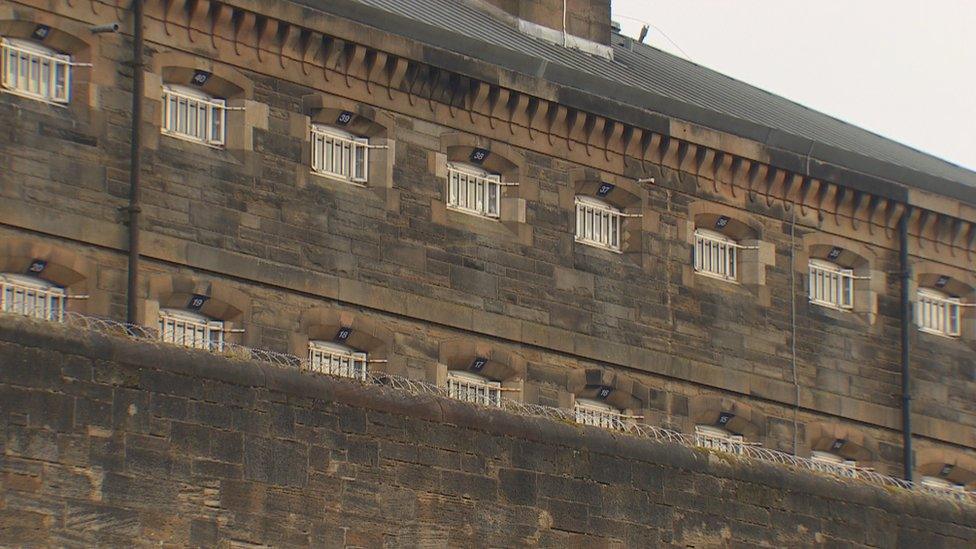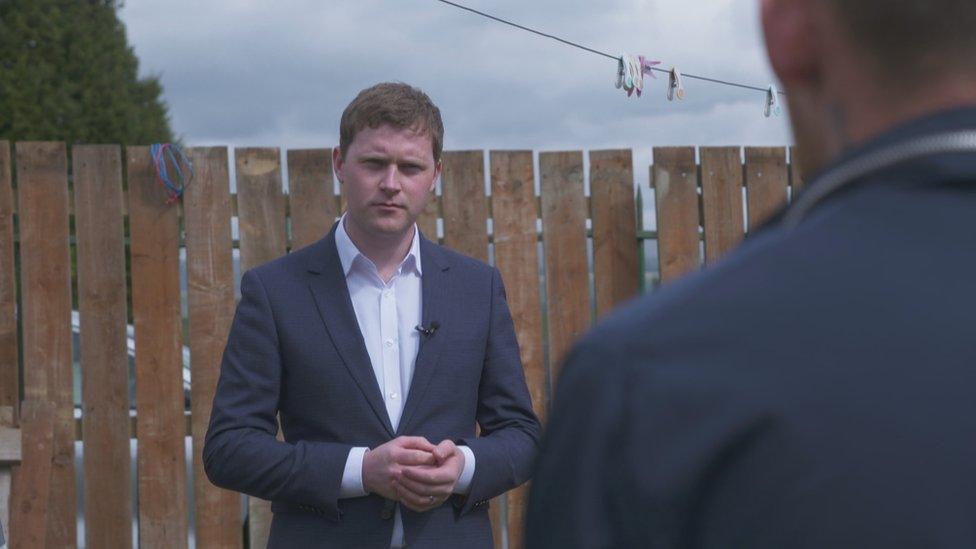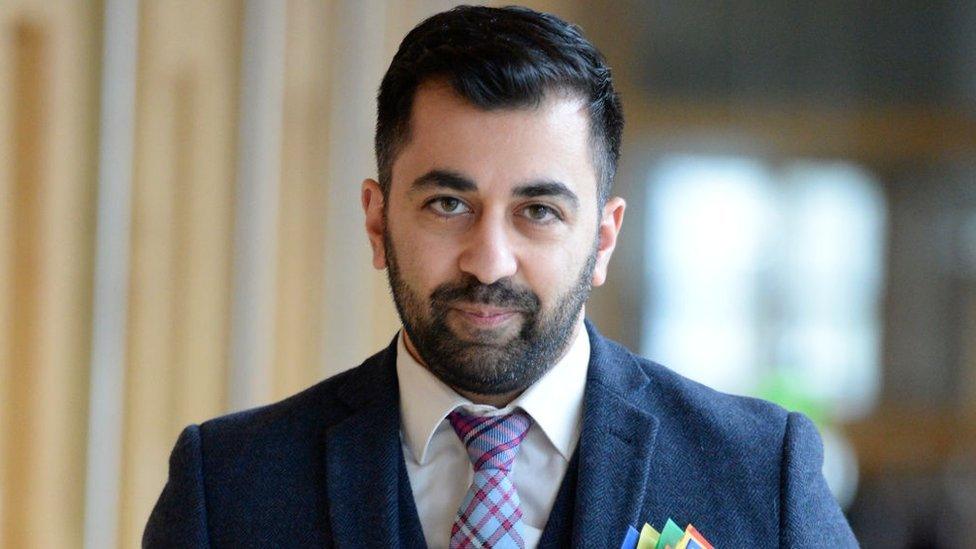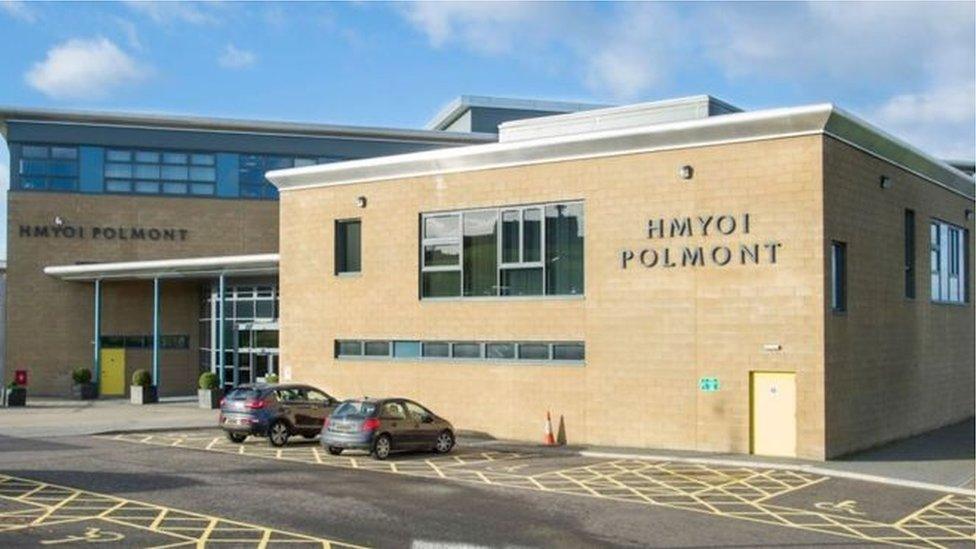Coronavirus: Ex-inmate warning over Barlinnie 'tensions'
- Published

A man recently released from Scotland's largest jail has claimed tension among prisoners is at boiling point.
Inmates at HMP Barlinnie in Glasgow are confined to their cells for 23 hours a day and all visits have been cancelled.
Justice Secretary Humza Yousaf said it had "always been a concern" that tensions could boil over but dismissed the possibility of riots.
It comes as the Scottish government approved new early release regulations to help the system cope.
The move allows up to 450 inmates out of prison early. but only those sentenced to 18 months or less and with 90 days or less left to serve are potentially eligible. Some serious offences are excluded.
The 28-year-old, who wishes to remain anonymous, was sentenced to more than a year in HMP Barlinnie for possession of a knife and was freed recently, prior to the new early release measures.

The former inmate spoke to The Nine reporter Connor Gillies about the mental health of prisoners
He told BBC Scotland's The Nine: "One of the things keeping me going was the gym most days but that got cut, a lot of the boys who were working in the sheds didn't get to go to their work.
"There were tensions rising. You could see it was ready to blow over at any point.
"There are a lot of people in there with mental health problems and they are not sure what to do with themselves.
"It is wee cells you are in and you are worried if your cell mate catches it (Covid 19) then that is you".
Easing tensions
The Scottish Prison Service told the BBC the prison population at HMP Barlinnie is now at its lowest level in many years.
Responding to the claims, Justice Secretary Humza Yousaf said: "I don't recognise that description. I speak to the Scottish Prison Service on a regular basis.
"Let's not talk about riots because we haven't seen that happen in Scotland but it has always been a concern that those tensions could boil over."

Justice Secretary Humza Yousaf first suggested prisoners could be released early, soon after the lockdown was announced at the end of March.
He continued: "If we reduce the prison population through the emergency early release scheme, we increase the number on electronic tags and the population reduces because there's a reduction in court business.
"All of those three things put together means that hopefully we get to a place where not only do we have single cell accommodation across the majority of the prison estate but hopefully we can begin to relax and ease the regime within our prisons."
Mr Yousaf also said mobile phones will be introduced into Scotland's prisons within the "next three to four weeks" to maintain contact between people in custody and their families during the Covid-19 outbreak.
Demand for mentors
The former prisoner who spoke to the BBC was supported by The Wise Group which helps inmates as part of their transition back into the community. Their "New Route" mentoring programme has been running for seven years.
Hamish Robertson from the organisation said demand had soared recently. His team prepare "liberation packs" which include vouchers to top up mobile phones and for basic food supplies.
He said: "Normally 100 people join the service a month. In the past four weeks, 290 have joined the programme.
"This is in preparation for the early release, where we are proactively encouraging people to join the programme earlier than normal so we can support them at point of release.
"In any circumstance, prison leavers are a cohort who generally need support on release - and at a time when restrictions are understandably in place, they certainly need our support on release.
"That's why we started preparing more than five weeks ago for early release with the aim that everyone leaving prison as part of the early release would be assertively been offered the service."
- Published22 April 2020
